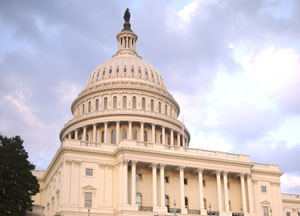As provider groups dig into the details of the debt ceiling compromise struck over the weekend, some aren’t too happy.

Photo by Karl Eisenhower/KHN
“We could not be for this legislation, because it as an arbitrary, automatic reduction … that is for fiscal reasons that have nothing to do with health policy. And we can’t support that,” Chip Kahn, president and chief executive officer of the Federation of American Hospitals, said in an interview.
Among its provisions, the deal would protect Medicare from cuts greater than 2 percent if a bipartisan commission created in the legislation fails to produce a $1.5 package of spending cuts or if Congress fails to enact them. In addition, those cuts would have to come from provider reimbursements and not enrollees’ coverage.
Limiting any automatic spending cuts in Medicare to 2 percent won’t help, says Kahn. “From our view, there’s no separation between these kinds of provider cuts and something that will affect beneficiaries. It will affect the way providers operate and at some point this artificial separation between things that affect beneficiaries and provider cuts has got to be identified for what it is – an artificial break. If it affects providers, it affects beneficiaries.”
In a statement, Rich Umbdenstock, the American Hospital Association president and chief executive, said cutting hospitals will mean decreased access for seniors. “That’s why the total Medicare program – including caregivers – should be exempt” from cuts that he said could overload emergency rooms, shut trauma units and reduce patient access to the latest treatments.
The 170,000 member National Nurses United is urging Congress to vote against the deal, which “kicks the can further down the road on real solutions that are needed to promise genuine recovery,” says Rose Ann DeMoro, the group’s executive director.






